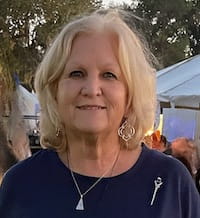American culture pushes people to dream big, stand out, and reach for the stars. That can make living a typical life feel underwhelming, or even like a failure.
Nonsense, says Shirley Hodes, who celebrated her 107th birthday earlier this month at an independent living facility in North Carolina. “Not everyone has their dreams come true,” she tells CNBC Make It. If you want to be happy in life, especially as you age, “you have to look at other things besides dreams.”
That philosophy doesn’t have to feel harsh or defeatist. Instead, it can mean reorienting yourself towards finding joy in small things, in what you can control and in wanting what you already have.
“You have to be content with who you are and what you can expect of yourself. Find things that are satisfying,” Hodes says.
Cultivating this kind of happiness mindset requires effort, Hodes acknowledges. But the work can pay off: Positivity is linked to a longer and healthier life. Here are her top tips for staying happy as you get older.
Think of yourself as fortunate
Hodes is a small, birdlike woman who’s legally blind, legally deaf and moves slowly. But her eyes are bright with curiosity and, thanks to hearing aids, she can hold conversations with other residents of her retirement home. Some of them are 20 years younger than she is, and yet don’t have her energy.
Part of her mindset requires focusing less on what other people have, and more on the aspects of life that she feels grateful for. It keeps her from getting swept up in jealousy or resentment, Hodes says: “You have to evaluate what you have, and how special it is, and how lucky you are.”
Small things delight her on a daily basis: Listening to books on tape, taking careful walks, old movies on TV, a scoop of ice cream after dinner. Most importantly, her family.
Sisters Shirley Hodes and Ruth Sweedler, circa 1923
Courtesy subject
She chats on the phone with her one surviving sister, 103-year-old Ruth Sweedler, and with her daughter, who visits several times a week. Pictures of her grandchildren and great-grandchildren beam down at her from the walls.
As the seventh of eight children in her working-class immigrant family’s overflowing rental apartment, Hodes didn’t get a lot of things she wanted, including the chance to go to college. Starting in high school, she had to work instead.
Her voice has a longing quality when she talks about what might have been. Then she circles back to appreciation.
Sure, she didn’t get to be a journalist or a teacher, but she worked in a school for 20 years, enough to qualify for a pension. True, she couldn’t get a BA, but she got to audit classes as a retiree and earned accolades from her professor.
She, her husband and her children had “enough money to live sensibly,” she says. She has “the important things,” she adds firmly, including strong relationships and many more birthdays than most people.
“I don’t expect this wonderful life to last much longer,” says Hodes. “I’m on the edge now. What will be will be. The important thing is just to enjoy that and appreciate it.”
Reframe negative thoughts and ‘concentrate on the positive’
“Some people just concentrate on what doesn’t go their way,” Hodes says. “That’s so bad to live that way. You have to concentrate on the positive.”
When Hodes catches herself going down an unproductive mental path, she re-routes her thoughts, like an internal GPS. She reminds herself that “everyone has things that don’t work out,” and that what matters is resilience — being “capable of adjusting your thoughts and dreams.”
Shirley Hodes uses pen and ink to calculate her age based on her date of birth.
Trudy Galynker
Luminaries as diverse as former President Barack Obama and ex-monk Jay Shetty recommend staying upbeat by talking back to the dissatisfied or envious voice in your head. For Shetty, positivity requires fighting back against the urges to compare, complain and criticize, which he called “cancers of the mind” in his 2020 book, “Think Like a Monk.”
Instead of focusing on his frustrations, Obama reminds himself that the situation could always be worse, he recently told comedian Hasan Minhaj. “I do try to maintain some perspective,” Obama said. That helps him cultivate gratitude for what he has and avoid negativity about what he doesn’t.
This approach has worked for Hodes for decades.
“Most people have disappointments … [but] I have many things to be thankful for,” she says. “I think I’ll die knowing and realizing how lucky I’ve been, that I’ve had the best, the absolute best. When I think of my life and the wonders of it, I’m so grateful.”
DON’T MISS: Want to be smarter and more successful with your money, work & life? Sign up for our new newsletter!
Want to earn more and land your dream job? Join the free CNBC Make It: Your Money virtual event on Oct. 17 at 1 p.m. ET to learn how to level up your interview and negotiating skills, build your ideal career, boost your income and grow your wealth. Register for free today.
Check out:





